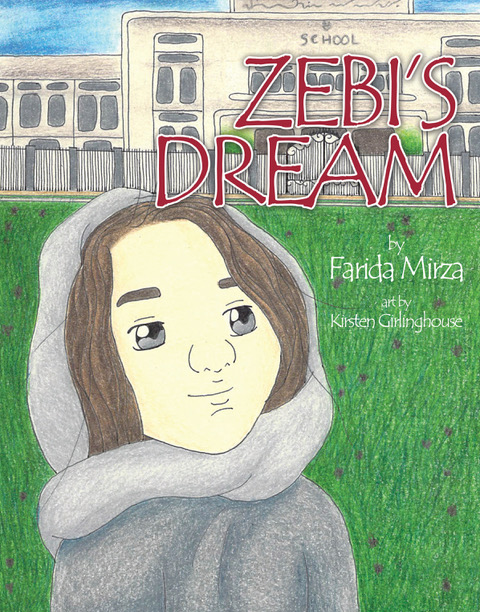 Welcome to Cantastic Authorpalooza, featuring posts by and about great Canadian children’s writers! Today’s guest: Farida Mizra. Take it away, Farida!
Welcome to Cantastic Authorpalooza, featuring posts by and about great Canadian children’s writers! Today’s guest: Farida Mizra. Take it away, Farida!
My memories of growing up in pre-digital South East Asia are rich with images of living in extended families, sharing lives and loves with relatives, friends and neighbours and enjoying lifestyles not driven by speed and material wants, but of leisure and simplicity.
There are also cringing memories involving injustices born out of prioritizing tradition rather than embracing changes.
My mother was homeschooled in Farsi and Urdu. My father however, like many young men, went to the UK to pursue his medical studies. There was an apparent gender inequality in formal education.
There was another kind of inequality. The poor had almost no access to public education.
Women, the underprivileged and the privileged, were not becoming aware of the new findings in child development that were creeping in through a slowly changing environment.
I became conscious of the ‘exploitation’ of children. I saw, not to my liking, innocent but ignorant adults not changing their ways while the world was changing around them. Girls were still married young rather than allowed to complete their education. Women were exploited in rich as well as poor households. Gender inequality seemed hard to accept by my young self.
As an adult, I came across the words, ‘I am to … learn’ (anonymous) and they affected me profoundly. The words had the potential to answer many of my questions, philosophical and mundane. I took them immediately to mean ‘learning’ as in education, while I decided to let them mull around in my mind for finer and deeper implications.
I’d always loved writing, especially compositions in my English class. My father took my siblings and me regularly to borrow books from a library. I grew up reading Grimm’s Fairytales, Aesop’s Fables and many fabulously illustrated children’s books. The illustrations and visions of a landscape and people different from my own fascinated me and stimulated my imagination.
My passion for writing was confirmed when I had to write an imaginary essay for my high school final exam: a day in the life of a farmer. I was so carried away by what I was writing that I forgot the time limit and had to stop midway. Luckily I was able to think of a quick conclusion!
Many years passed. After high school, there was university, marriage, children and jobs – years in which I was too busy to write. I did occasionally but it was sporadic and not as often as I wished; actually, it still isn’t.
My children grown-up, I decided to start writing with the aim of publishing. I decided to write for children. I wanted to write fun stories with something children could take away from.
I finally wrote three stories about Suraj, a tiger cub. Suraj teaches himself to overcome common childhood-related fears such as separation anxiety, inability to make friends and bullying. I decided to weave an important strategy into the stories – the strategy of ‘pausing to think out a solution before taking action’ when faced with a problem. Children do not always have a supportive adult around when they face a problem. The stories would make children aware of an option to find solutions independently. Children have tremendous potential that is often underestimated. As Dr. Seuss says, A person’s a person, no matter how small.
I loved writing the Suraj stories and I still love reading them. I sent the three stories to publishers in the US but received rejections. I decided to self-publish. Facing financial restraints, I managed to find someone who did the illustrations for me free because she had time and the inclination to illustrate a book. She is a great illustrator. However, because of personal commitments she had to stop the project half way. She had done the sketches but could not do the colouring. I found someone who did the colouring.
I self-published all three stories under one title, Suraj The Tiger Cub, as publishing three separate books was not viable. Soon after, when I was visiting my homeland in 2014, a children’s publisher saw a copy of my book. They offered to acquire it and publish it under the banner of Oxford University Press (OUP): you can find it in their catalogue, here. Since then, OUP has published five more books of mine.
I continued writing and self-published three more books on Amazon, Poems That Empower Children, I See Things From Where I Am, and Zebi’s Dream. Zebi’s Dream has recently been acquired by Waldorf Publishing and is available on their website.
Two of my books, Hala’s Window (OUP) and Zebi’s Dream (Waldorf) are about education, poverty and girls. My current WIP is a middle grade novel. To learn more, visit my website at www.fmirza.com.